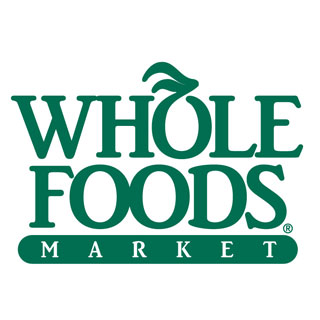Whole Foods Responds to GMO Concerns, Protester Arrests
By Anthony Todd in Food on May 18, 2011 4:20PM
 Yesterday, the Organic Consumer's Association picketed the Lincoln Park Whole Foods, alleging that Whole Foods isn't doing enough to fight the pervasiveness of genetically-modified foods. In the course of the protest, the political director of the OCA, Alexis Baden-Mayer, was arrested. We got in touch with Whole Foods to get their side of the story - what their policies on genetically modified organisms actually are, how they dealt with the protest and what they are doing to improve the products across their stores.
Yesterday, the Organic Consumer's Association picketed the Lincoln Park Whole Foods, alleging that Whole Foods isn't doing enough to fight the pervasiveness of genetically-modified foods. In the course of the protest, the political director of the OCA, Alexis Baden-Mayer, was arrested. We got in touch with Whole Foods to get their side of the story - what their policies on genetically modified organisms actually are, how they dealt with the protest and what they are doing to improve the products across their stores.
Libba Letton, a spokesperson for Whole Foods, spoke to us this morning. She insists that Whole Foods had nothing to do with the arrest - in fact, they welcome increased awareness about GMOs. "If you can't handle a protest, you need to rethink your strategy. These people [protesters] are our customers, and they let us know that." The exact details are a bit fuzzy, but Letton insisted that the protest happened off of Whole Foods property and that no one on their staff called the police.
The fuss around the protest shouldn't detract from the real issue - what is Whole Foods' position on GMOs? As we mentioned yesterday, all USDA-certified organic foods are required to be GMO free. "Some people think everything at Whole Foods Market is organic," Letton warned us - and it's not true. They carry conventional produce, as well as a wide variety of packaged food. The protestors from OCA were complaining that the non-organic foods, which potentially contained GMOs, should be labelled and/or removed from the stores. Letton pointed out that 93% of the soy grown in America is GMO, which makes establishing a supply chain for non-GMO foods difficult. But what is being done?
"In our own product line [365], all non-organic products are enrolled in the Non-GMO Project. A lot of our suppliers have gone through the Non-GMO project. We are encouraging all of our other suppliers to look into going organic or non-GMO. At the same time, since GMO crops are so pervasive, it can be a challenge for suppliers to find enough crops if they want to switch their product line to non-GMO." The Non-GMO Project offers third-party verification that the contents of any product do not include any genetically modified organisms.
Whole Foods is working to convince more farmers that if they grow non-GMO crops, there will be a market for them. According to Letton, "We are working on plans to go back in the supply chain and talk to growers, to convince them to grow non-GMO crops." This is part of a longer effort to educate consumers about the issues surrounding genetic modification.
For more information, read the Whole Foods Genetically Engineered Foods policy statement.